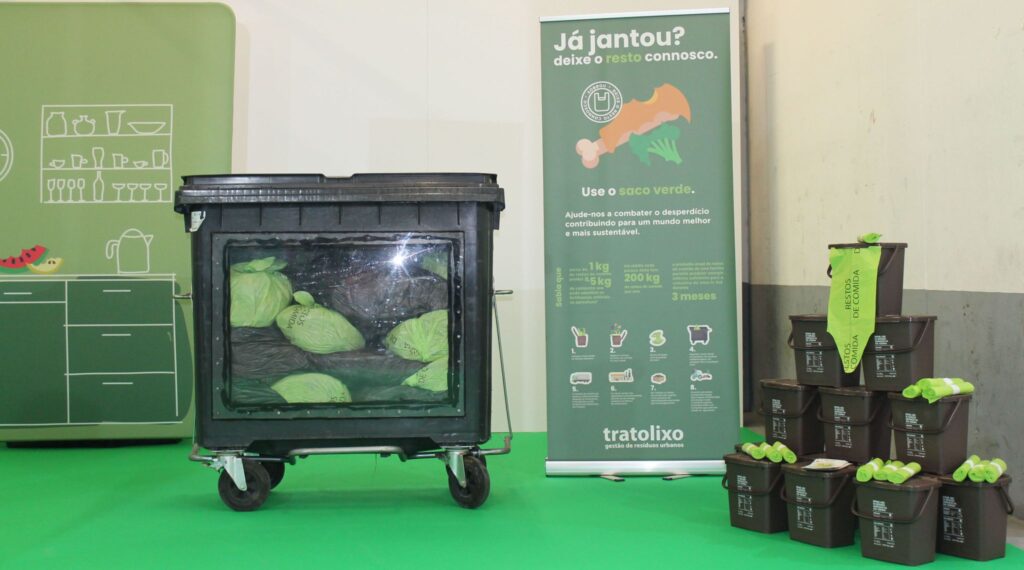The Mediterranean Diet is a lifestyle marked by diversity combined with a set of food and social characteristics that make it a cultural, historical and health model that is widely recognised as the healthiest and most sustainable in the world.
From a food point of view, the interactions with sustainability are numerous, but the impact that food waste – and even the management of that waste – has on the environment is often overlooked.
TRATOLIXO is a company that represents one of the various segments of the food system, specifically in its final phase, i.e. from the point of view of waste, its recovery and sustainable management.
In compliance with its vision and strategy, TRATOLIXO promotes the Circular Economy in its daily activities and is committed to innovation in order to obtain new solutions in this field.
As such, TRATOLIXO has implemented, together with its municipalities, the selective collection of biowaste in optical bags, known as the “Green Bags Project”.
The collection of this biowaste is carried out on a co-collection basis with the collection of unsorted waste, using the same vehicles used by the municipal services, and the biowaste is delivered to TRATOLIXO’s new Mechanical Treatment (MT) plant in Trajouce. The green bags are then automatically sorted using existing technology at the factory, which makes it possible to obtain a high quality organic fraction, which is then sent for biological recovery at TRATOLIXO’s Anaerobic Digestion Plant located in Abrunheira, to produce electricity and compost.
The project had a European Union co-funding by the Operational Programme for Sustainability and Efficient Use of Resources (PO SEUR).
Greenbags biowaste is co-collected together with unsorted waste at the same public containers – no additional containers need to be installed – and this co-collection is carried out on the same routes and with the same vehicles, allowing:
– avoid additional washing of existing containers and collection vehicles, saving around 300,000 m3 of water per year,
– avoid the consumption of more than 850,000 litres of fossil fuel (diesel) per year, avoiding the consequent emission of more than 2,250,000 kg of CO2 per year;
– save finantial costs around 5M€/year in waste collection, resulting in a waste collection model that is 55% to 74% less expensive than dedicated collection.
At the end of 2023, the TM for optical bags began operating, and in 2024 around 5,000 tonnes of biowaste were collected as part of this project, which made possible to produce green electricity – injected into the National Electricity Grid to supply families – and also compost for agriculture use – making it possible to increase the organic matter content in soils for crops and, thus, closing the cycle inherent in the Circular Economy.
By the end of 2024, more than 140,000 families had signed up for the project, around 45 per cent of the population in the four municipalities in TRATOLIXO’s area of intervention.
Based on the company’s total production data, it is estimated that the amount of green bags biowaste collected in 2024 will have produced 1.30 GWh of electricity and around 2,500 tonnes of agricultural compost.


